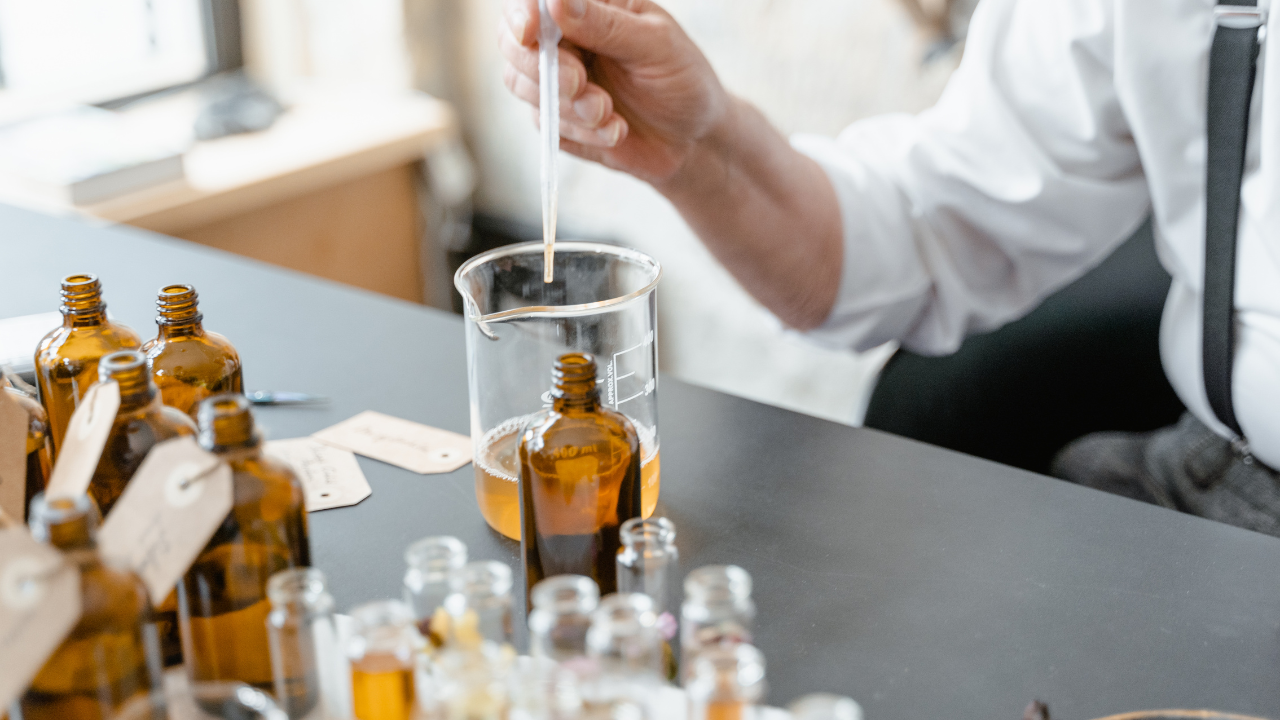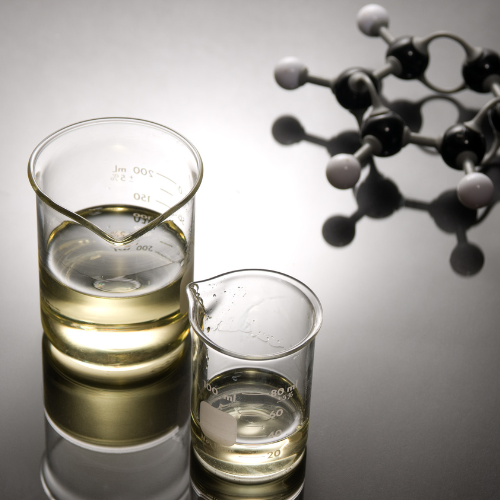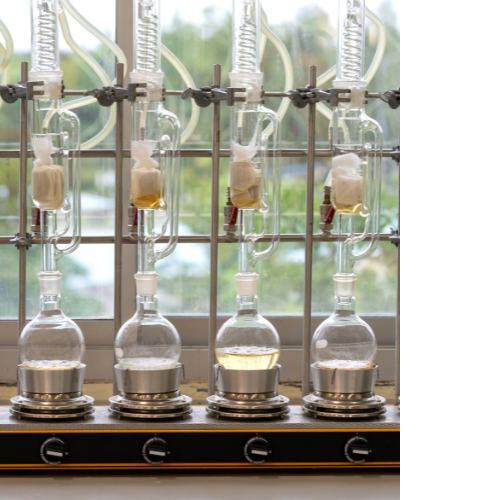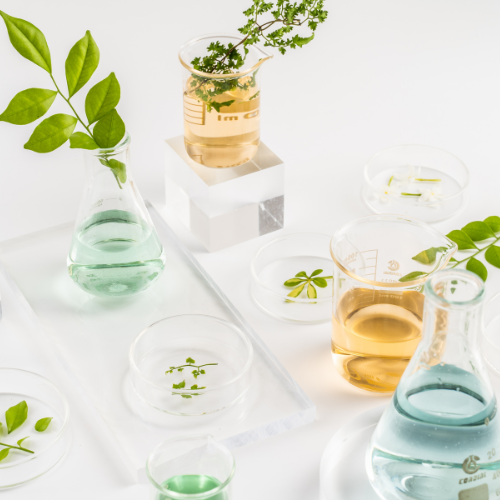Yes, Aromatherapy Is Science And Here's Why That Matters

Ask someone what aromatherapy is, and they might say, “It’s about calming scents” or “It’s something relaxing with essential oils”. And while that’s partly true, it’s far from the whole story. Beneath the beauty of every aroma is something far more intricate: a complex world of chemistry, biology, and science.
Aromatherapy isn’t just about how something smells. It’s about how that scent interacts with the body, the brain, and even our emotions on a measurable, physiological level.
Still, in many countries, aromatherapy is often dismissed as vague or “unscientific,” especially when compared to more conventional approaches to health. That misunderstanding has real consequences, from unsafe use to missed opportunities for healing. If you're someone who’s drawn to essential oils but unsure about how far to trust them, or how to use them with real skill, this might be the perspective shift you've been waiting for.
Why This Misunderstanding Matters?
Aromatherapy often lives in two worlds: the intuitive and the scientific. Unfortunately, many people only ever experience the first. They follow social media tips, blend by instinct, or rely on vague claims like “uplifting” or “detoxifying” without ever learning what those words really mean, or how to apply essential oils safely and effectively.
only ever experience the first. They follow social media tips, blend by instinct, or rely on vague claims like “uplifting” or “detoxifying” without ever learning what those words really mean, or how to apply essential oils safely and effectively.
That gap between curiosity and credible knowledge matters more than it seems.
When people believe aromatherapy is “just a scent”, they tend to skip important safety steps. They might apply oils undiluted, use them with very young children or pets without caution, or even ingest them based on someone’s anecdotal advice. Without training in dilution, contraindications, or the body’s systems, even well-intentioned use can lead to sensitization, hormonal disruption, or serious reactions.
And it’s not just about risk! It’s about missed potential. Essential oils are powerful tools with measurable effects on the nervous system, immune response, skin, digestion, and more. But without understanding their chemistry or the science of olfaction, people often underestimate what oils can really do, or apply them in ways that limit their effectiveness.
Recognizing aromatherapy as a scientific discipline doesn't take away its beauty. In fact, it unlocks the deeper layers of what’s possible: blending the art of intuition with the structure of research to create something truly holistic.
The Science Behind the Scent
So what exactly makes aromatherapy scientific? At its core, it’s a practice rooted in observation, biochemistry, and human physiology. Every drop of essential oil contains dozens, sometimes hundreds, of chemical constituents. These natural compounds interact with the body in specific, often measurable ways.
Chemistry: The Language of Plants
Each essential oil is made up of aromatic molecules. Chemical compounds like linalool, limonene, and 1,8-cineole, or a synergy of these and other compounds, determine its aroma, and help to determine the oil’s therapeutic effects, and safety profile. Understanding them allows trained aromatherapists to choose oils not just based on scent, but based on their actions at a cellular and systemic level.
 For example, true lavender's calming effect isn’t just folklore. It’s linked to its high content of chemical compounds linalool and linalyl acetate, which have been shown to influence the nervous system and promote relaxation. When you understand the chemistry, blending becomes purposeful, and powerful.
For example, true lavender's calming effect isn’t just folklore. It’s linked to its high content of chemical compounds linalool and linalyl acetate, which have been shown to influence the nervous system and promote relaxation. When you understand the chemistry, blending becomes purposeful, and powerful.
Here’s why chemistry is such an important topic!
Anatomy & Physiology: The Human Connection
Essential oils don’t just linger in the air. They enter the body – through the lungs, the skin, or the nose – and interact with complex systems. Olfactory signals go straight to the limbic system in the brain, which governs emotion, memory, and even hormone regulation. Some oils can stimulate circulation, soothe inflammation, or ease muscular tension because of how they act on the body’s tissues and responses.
That’s why professional training includes the study of human anatomy and physiology. It helps aromatherapists understand how and where oils work, and how to support the body safely and effectively.
Neuroscience & Psychology: The Emotional Dimension
Scent has a direct line to memory, mood, and behaviour. It’s why a whiff of rosemary can sharpen focus, or why citrus oils often feel uplifting. But beyond subjective experience, there’s real research showing how essential oils affect neurotransmitters, brainwaves, and even cortisol levels.
Modern aromatherapy blends ancient wisdom with emerging studies in psychoneuroimmunology and brain chemistry. It’s an evolving field, and a very exciting one.
Read more about the Sedative and Anxiolytic Activities of Cedrol and Virginian Cedarwood Essential Oil.
Why Science Doesn’t Diminish the Magic But Deepens It
There’s a quiet fear some people carry when they hear the word “science” in relation to aromatherapy, as if turning toward research might take away the soul of the practice. But the truth is, science doesn’t flatten the experience. It gives it shape, direction, and depth.
Understanding the chemistry of essential oils doesn’t make them less beautiful! It actually makes them even more meaningful. When you learn why a certain oil calms the nervous system or how it interacts with the endocrine system, you start to see just how intelligently nature is designed. The knowledge doesn’t dull the mystery, it illuminates it.
In fact, many aromatherapy students who come to aromatherapy for emotional or spiritual reasons find that learning the science behind it actually strengthens their connection. They’re able to bring more intention to their blends, more clarity to their choices, and more confidence to their practice.
Aromatherapy is a bridge between the tangible and the intangible. Between what we can measure and what we can feel. And science gives that bridge a solid foundation.
How Essence of Thyme Brings Science to Life
At Essence of Thyme College of Holistic Studies, we approach aromatherapy as both a craft and a discipline, something to be practiced with care, curiosity, and clarity. That’s why our programs don’t just teach you what essential oils do; they show you how and why they work, so you can use them with confidence in any setting.
For students who want to go beyond the basics, the Advanced Aromatherapy Science Program offers a deeper exploration into the scientific foundation of essential oils. Developed and taught by internationally respected experts Marco Valussi and Dr. Benoît Roger, this course dives into essential oil pharmacology, clinical research, and the ecological context of medicinal and aromatic plants. It's designed for professionals who want to ground their practice in the most up-to-date, evidence-based knowledge available.
offers a deeper exploration into the scientific foundation of essential oils. Developed and taught by internationally respected experts Marco Valussi and Dr. Benoît Roger, this course dives into essential oil pharmacology, clinical research, and the ecological context of medicinal and aromatic plants. It's designed for professionals who want to ground their practice in the most up-to-date, evidence-based knowledge available.
It doesn’t matter if you're just beginning or expanding an existing practice, our approach is rooted in rigorous education and real-world application. We believe the more you understand, from chemistry to human physiology to emerging aromatherapy research, the more impactful your work becomes.
And along the way, you’ll have access to personal mentorship, live lectures, and a global community of learners who, like you, want to blend intuition with integrity.
Your Next Step: Embracing the Science of Aromatherapy
If you’ve ever felt torn between your love of essential oils and your desire to understand them more deeply, you’re not alone. Many people begin with curiosity, intuition, or a personal experience, just to realize there’s so much more beneath the surface.
Choosing to study aromatherapy through a scientific lens doesn’t mean leaving behind beauty, creativity, or care. It means stepping into a richer, more informed relationship with the plants you already love. It means being able to support others safely and thoughtfully. And it means knowing how to navigate misinformation, hype, and half-truths with clarity and confidence.
At Essence of Thyme College of Holistic Studies, we’re here to support that next step! Whether you’re just beginning or ready to deepen your expertise. From foundational certification to advanced clinical studies, our programs are designed to meet you where you are and help you grow.
Article by: Essence of Thyme College of Holistic Studies
About Essence of Thyme College of Holistic Studies
Essence of Thyme College of Holistic Studies offers 300- and 630-hour professional aromatherapy certification programs that help you grow a successful, fulfilling career by specializing and creating your market niche. Professional Level Certification prepares graduates to become aromatherapy consultants, launch product lines or retail businesses, or provide services as an adjunct to existing holistic health specializations. Master Level Certification and electives are ideal for certified aromatherapists seeking higher education or a path to clinical aromatherapy practice.
All Essence of Thyme programs focus on aromatherapy product development and advanced formulation, evidence-based research, spa and business management, international industry regulatory guidelines, and sustainability and conservation of essential oil and carrier oil-bearing plants.
Our comprehensive, evidence-based programs meet or exceed the criteria set forth by 5 international professional aromatherapy associations. Learn more about our aromatherapy certification programs.


